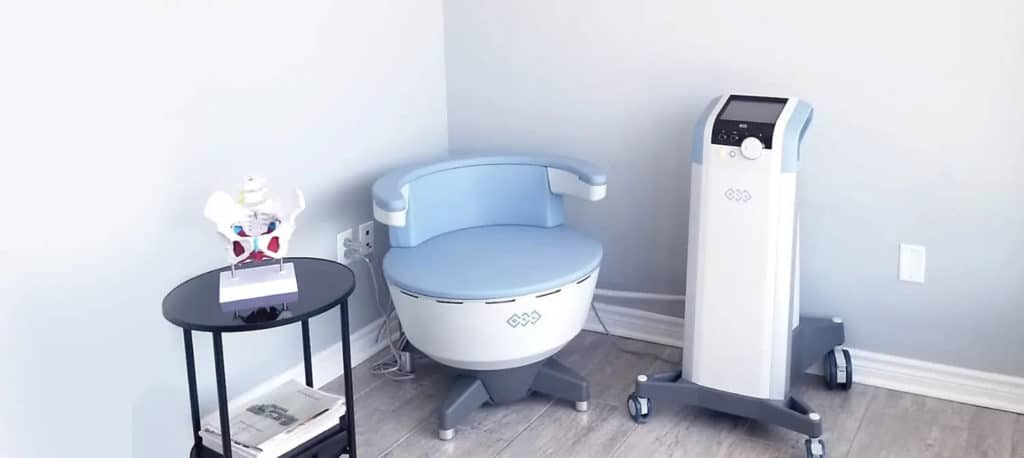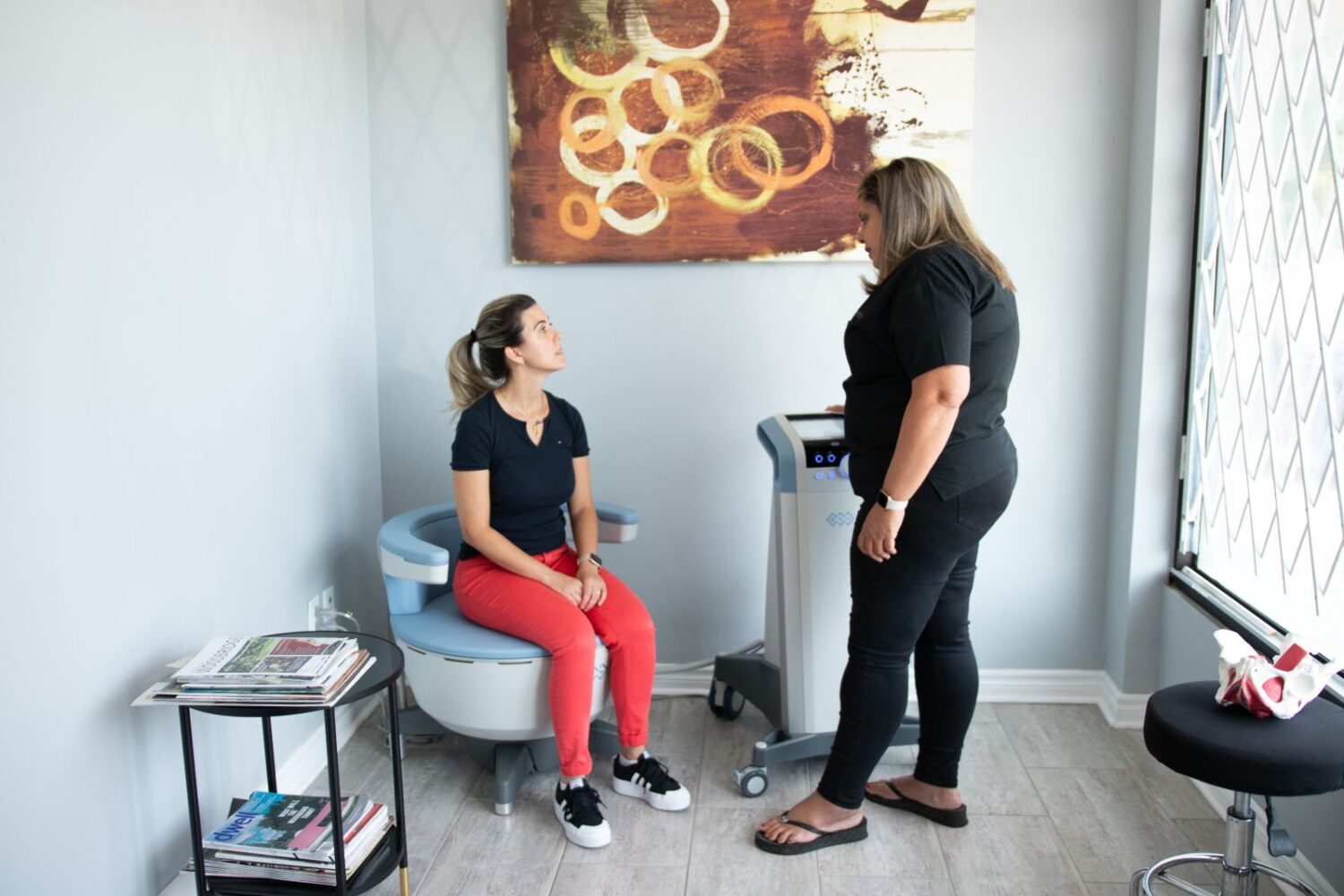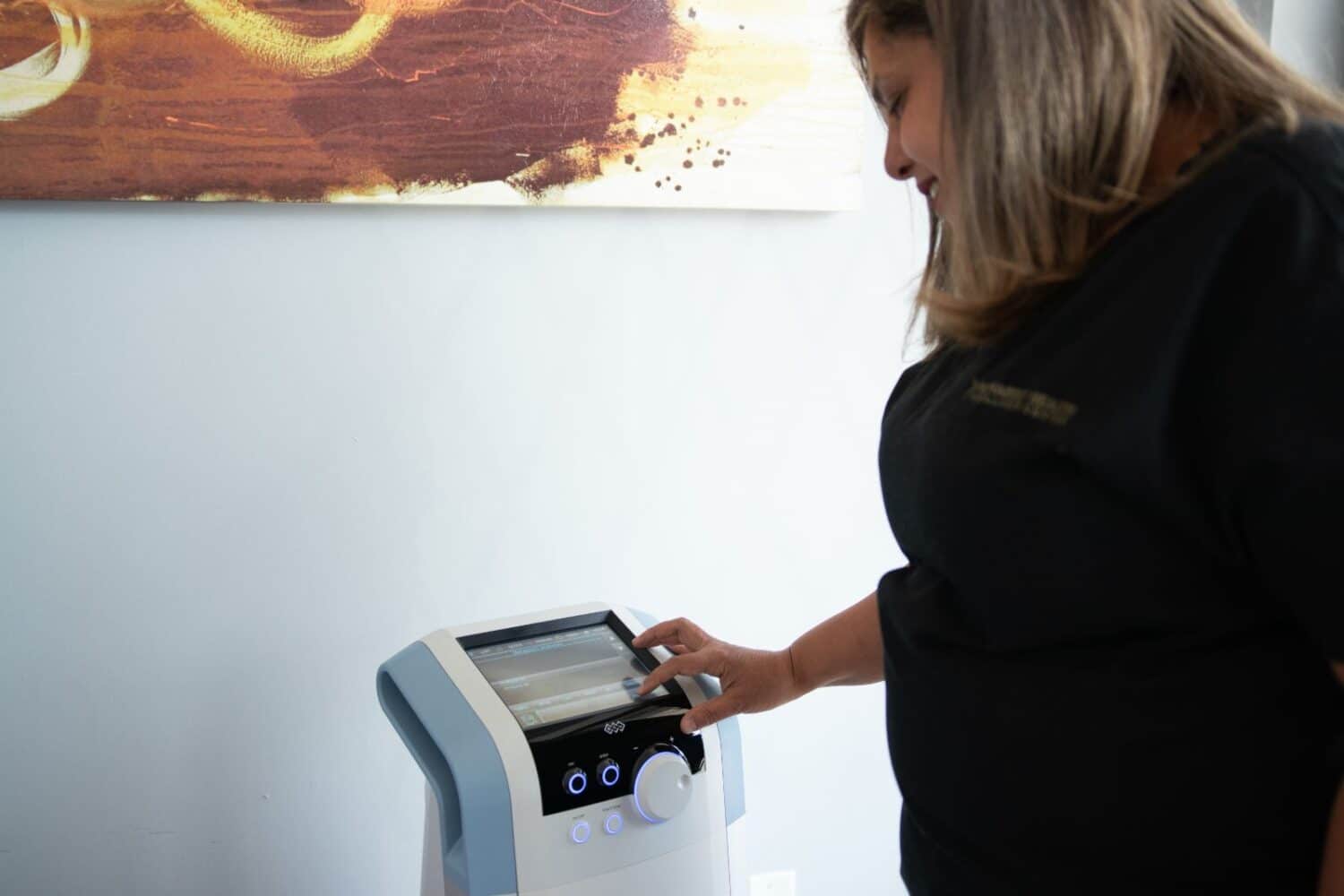Pelvic Floor Physiotherapy in Newmarket
The pelvic floor muscles are responsible for the following functions:
What Does a Pelvic Floor Physiotherapist Do?
Unfortunately, many people who experience such symptoms believe they just have to suffer through the pain, and yet there is an effective treatment they can undergo to help address these issues and make them feel better. A pelvic floor physiotherapist in Newmarket can help decrease the symptoms caused by pelvic dysfunction or eliminate them altogether.
Pelvic Floor Dysfunction Symptoms
Pelvic floor dysfunction can be caused by pregnancy and childbirth, hormonal changes like menopause, excessive heavy lifting, pelvic surgery or straining when urinating or having a bowel movement.

Postnatal Pelvic Floor Physiotherapy in Newmarket

Kegel exercises and pelvic floor exercises can strengthen your pelvic floor muscles, however, if your symptoms continue to be prevalent, physiotherapy may be the best course of action for you.
The need for postnatal pelvic floor physiotherapy is not only limited to women who have vaginal births. Women who have cesarean deliveries often need to have pelvic floor physiotherapy. This is because the weight of the baby, amniotic fluid, placenta, and uterus put excessive pressure on the pelvic floor muscles. It’s important that you have your pelvic floor exercises assessed particularly before returning to any form of exercise after childbirth just to make sure that your muscles in your pelvic floor are working as they should and ready for increased activity.








